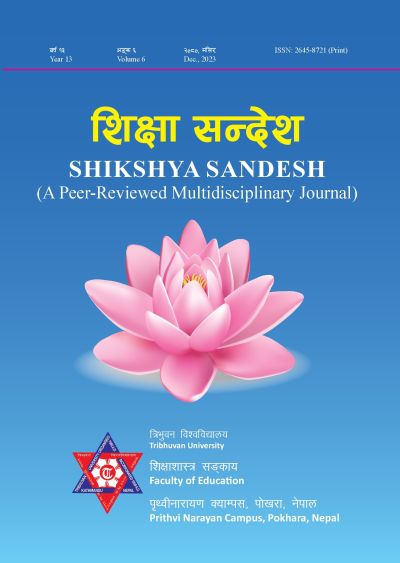Exploring the Implementation of Good Governance in Community School: A Case Study
DOI:
https://doi.org/10.3126/ss.v6i1.63092Keywords:
Community schools, governance, quality education, transparency, accountabilityAbstract
This study examines the implementation of good governance practices in Shree Shitaladevi Secondary School, Pokhara 11 of Kaski District, Nepal. It utilizes a case study design of a qualitative approach. Data collected through semi-structured interview with school head teacher, teachers, students and representatives of SMC as well as PTA and a focus group discussion with the representatives of school stakeholders has explored related themes to good governance such as openness and transparency, accountability, independence, integrity, and school effectiveness. The findings reveal positive practices including information sharing with stakeholders, transparent teacher recruitment processes, and financial accountability. Although students’ participation in policy-making is limited, it has highlighted the involvement of parents, teachers, and students in decision-making. The study emphasizes the importance of good governance in ensuring quality education and identifies areas for further improvement. Overall, this research contributes to the understanding of governance in community schools and provides valuable insights for policymakers and educators striving for better educational systems. This study has suggested a comprehensive research based on community schools of Nepal to explore the governance mechanisms through which community involvement can be harnessed to address existing challenges of school governance.
Downloads
Downloads
Published
How to Cite
Issue
Section
License
Copyright (c) 2023 The Author(s)

This work is licensed under a Creative Commons Attribution-NonCommercial 4.0 International License.
This license enables reusers to distribute, remix, adapt, and build upon the material in any medium or format for noncommercial purposes only, and only so long as attribution is given to the creator.




